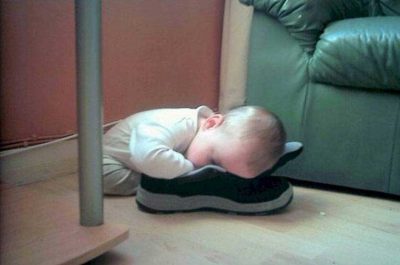
What is sleep walking?
Sleep walking usually happens during the first few houses after falling asleep. It usually lasts from 5-30 minutes. Sleeping walking can involve:
- Sitting upright in bed.
- Walking and even running around inside and outside the house.
- unlocking doors.
- finding and even eating food.
Children have no control over what they do when they are sleepwalking and so they may hurt themselves. This can be very worrying for parents.
Usually there is a family history of sleepwalking. If both parents were sleep walkers there is a daily high chance that their children will walk in their sleep. Where there is no family history, there is a much smaller chance that children will walk in their sleep.
When a child is sleepwalking he is likely to have her eyes open, and even talk to you, although what she says may be hard to understand. Children often pass urine (wee) when they are sleepwalking, sometimes in unusual places. They are usually difficult to waken, although some will wake by themselves. Sometimes try return to sleep in others other than their beds. The child does not remember what has happened.
What causes sleepwalking?
Sleepwalking is more likely to happen if your child has a high temperature or is overtires. Some medicines also seem to have an effect. Sleepwalking doesn’t mean that your child has emotional or physiological problems unless there is some other stress in the child’s life. As children grow older they sleepwalk less.
Do You Need to Worry if Your Child Sleep Walks
Sleepwalking by itself is not harmful to your child, but the fact that the child isn’t aware of what he or she is doing can prove to be hazardous. This is a given, because if your child strolls out of the house, or climbs downstairs, then he or she might get hurt. There have been instances when children have walked out on the street, only to find themselves lying in an unknown location in the morning. Having said this, you will have to worry about what your child does while having a sleepwalking episode, than worrying about the fact that your child has this condition at all.
What parents can do?
- There is no special treatment to stop sleepwalking so the important thing is to make sure your child is safe.
- Lock doors and windows, and put heaters, electrical cords and any other dangerous objects out of the way.
- If you catch you child sleepwalking, carefully guide him back to bed without waking him.
- Help him to understand that this is a natural thing and nothing to be embarrassed or worried about.
- You can keep a bell or alarm on the door of your child’s room, so if he or she opens the door, you will be aware of it.
- Hide the house keys and your car keys, in case your child tries to walk out of the house or take the car.
- Make sure your child isn’t sleeping in a bunk bed.
- Keep hazardous chemicals or any such objects from the reach of your child.
Reminders:
Most children grow out of sleepwalking.
For sleepwalking, make sure your house is safe.
Keep your child’s days as happy and relaxed as you can.

